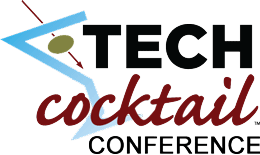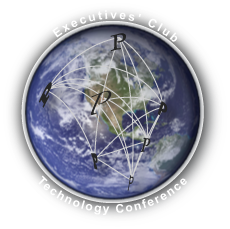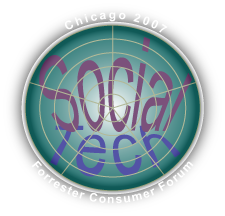Collaborating with Customers to Achieve Corporate Strategy—How Small Steps Can Lead to Large Impact
 Healthcare systems worldwide are criticized for falling short of expectations, and countries like the U.S. which feature aging populations, are rapidly approaching a crisis. Demand and cost will grow, but the system as currently structured will certainly break down unless radical changes are made. Web 2.0’s disruptive potential can be part of the remedy: we need to introduce much more accountability and collaboration into all parts of the system. We need to change the paternalistic attitudes that pervade the system, treat patients as active participants and encourage everyone to be more accountable. This series introduces healthcare Web 2.0 innovators. Healthcare systems worldwide are criticized for falling short of expectations, and countries like the U.S. which feature aging populations, are rapidly approaching a crisis. Demand and cost will grow, but the system as currently structured will certainly break down unless radical changes are made. Web 2.0’s disruptive potential can be part of the remedy: we need to introduce much more accountability and collaboration into all parts of the system. We need to change the paternalistic attitudes that pervade the system, treat patients as active participants and encourage everyone to be more accountable. This series introduces healthcare Web 2.0 innovators.
CDC Business Drivers
CDC’s charter is to protect public health. The agency serves as a resource to mitigate the impact of infectious diseases, environmental health, bioterrorism and others. It fulfils its mission by connecting with people and educating the public; it seeks to partner with people to increase their knowledge of health hazards and how to respond appropriately in the face of threats.
[…]
Knowledge Economy Unfolds via All Things Digital-Social—Wearing Passion and Personality on Your Sleeve
Discerning Web 2.0 from Web 1.0—Ron May Gets Comeuppance as Happy and Successful
 Web 2.0 entrepreneurs, financiers and professional services folk descended on Loyola University Chicago’s Lewis Hall 29 May 2008 for “Tech Conference,” TechCocktail’s first ever day-long educational event. Founders Frank Gruber and Eric Olson served an effervescent yet heady elixir of heart-to-heart war stories, lessons learned and strategies by entrepreneurs, venture capitalists, lawyers, accountants and an executive coach. Web 2.0 entrepreneurs, financiers and professional services folk descended on Loyola University Chicago’s Lewis Hall 29 May 2008 for “Tech Conference,” TechCocktail’s first ever day-long educational event. Founders Frank Gruber and Eric Olson served an effervescent yet heady elixir of heart-to-heart war stories, lessons learned and strategies by entrepreneurs, venture capitalists, lawyers, accountants and an executive coach.
Since attending TechCocktail 1 in July 2006, I have promoted the periodic TechCocktail “meetups” to everyone who will listen as the place to learn about and connect with Web 2.0 players and technology in Chicago (elsewhere now, too). Frank and Eric have created one of the most worthwhile groups and communities in the city and were recognized in the ITA’s Citylights this year. Their first conference was both high value and quintessentially Web 2.0: speakers were open about what had worked and what hadn’t. The program was well balanced, organized and entertaining. There were considerable lessons for […]
Leveraging B2C “Social” Networks for Real Enterprise Advantage—Flashbacks to Web 1.0—People in Bars
 Pan in, circa 1998, and enterprises were beginning to doubt the conventional wisdom that had prevailed during the past three years, namely that “the Internet” was a Silicon Valley fad that would blow over with nary a whimper. It was “for kids,” it didn’t merit adult attention—none of these “businesses” were making money anyway. You can’t be serious, how could a money-losing online bookstore affect GM? It looks silly to read these words today, but that’s only because we know what happened. Here I will suggest that we are on the cusp of a similar shift with Web 2.0 and social networks, I’ll outline an approach you can use to consider your adoption strategy, and I will recommend tactical things you can do right now to leverage LinkedIn, Facebook, Twitter, YouTube, Del.icio.us and others. Pan in, circa 1998, and enterprises were beginning to doubt the conventional wisdom that had prevailed during the past three years, namely that “the Internet” was a Silicon Valley fad that would blow over with nary a whimper. It was “for kids,” it didn’t merit adult attention—none of these “businesses” were making money anyway. You can’t be serious, how could a money-losing online bookstore affect GM? It looks silly to read these words today, but that’s only because we know what happened. Here I will suggest that we are on the cusp of a similar shift with Web 2.0 and social networks, I’ll outline an approach you can use to consider your adoption strategy, and I will recommend tactical things you can do right now to leverage LinkedIn, Facebook, Twitter, YouTube, Del.icio.us and others.
Since 2006, my consulting work has encompassed strategic and tactical sides of Web 2.0 and social networks and, in 2008, I launched a tactically-focused service, the Executive’s Guide to LinkedIn, which helps global enterprises to use LinkedIn for process innovation. This has provided the […]
Web 2.0 Pureplays vs. Enterprise Vendors: A Real Battle compares the value propositions of Web 2.0 pureplays and traditional vendors.

Dennis Howlett, writing in the Irregular Enterprise on 19 March, made the case that enterprise IT just didn’t get social networking and start-ups were going to make some serious hay by bypassing IT and selling right into the business. He had also included a YouTube video in which CIOs commented on the question, “Is Enterprise 2.0 hype or happening?” which provided some light-hearted snippets about a profound subject. There was some valuable information in the post, but I found that it was approaching the issue from within the old paradigm (“battle on two fronts”), and therefore largely left money of the table. I’ll peel the onion here, so get ready to well up.
[…]
IBM Drives Enterprise Adoption of Social Networks with New Enterprise Adaptability Practice offers reportage on the launch of IBM’s enterprise adaptability practice
Shades of Web 3.0—The Googlization of Knowledge Management—Resetting the Adoption Clocks
 Tuesday IBM announced a new services practice, “Enterprise Adaptability” services, which aims to help global companies realize a quantum leap in workforce agility and collaboration by facilitating their adoption of social networks and Web 2.0. As predicted in the Year in Review—2007, social networks and Web 2.0 are being embraced in the enterprise B2B arena this year, and this announcement shows that adoption is right on ahead of schedule. Enterprise 2.0 is reaching the mainstream, and companies that do not aggressively adopt enterprise 2.0 will experience serious competitive threats within three years. Tuesday IBM announced a new services practice, “Enterprise Adaptability” services, which aims to help global companies realize a quantum leap in workforce agility and collaboration by facilitating their adoption of social networks and Web 2.0. As predicted in the Year in Review—2007, social networks and Web 2.0 are being embraced in the enterprise B2B arena this year, and this announcement shows that adoption is right on ahead of schedule. Enterprise 2.0 is reaching the mainstream, and companies that do not aggressively adopt enterprise 2.0 will experience serious competitive threats within three years.
IBM’s announcement validates enterprise social networking, but more significant is their rationale for launching the practice: their clients are struggling with adjusting to the Knowledge Economy, globalization and decreasing margins, and Enterprise Adaptability prescribes collaboration and innovation to cure legendary agility gaps. As explained below, Enterprise Adaptability smells like breakthrough, although it’s barely out of the oven. To look behind the curtain, I caught up with […]
Year in Review 2007—Editor’s Choice of the Global Human Capital Journal
 As I reflect on 2007 and create strategy for 2008, several macro-trends come into sharp relief, and I believe that some of them might be helpful to you as you conduct your own planning. As always, I focus on emerging phenomena because they are areas in which disruption and discontinuous change are acting on markets, thereby elevating threats and opportunities. Helping leaders to create strategy to manage the risk of unusual market developments is the focus of my consulting practice. As I reflect on 2007 and create strategy for 2008, several macro-trends come into sharp relief, and I believe that some of them might be helpful to you as you conduct your own planning. As always, I focus on emerging phenomena because they are areas in which disruption and discontinuous change are acting on markets, thereby elevating threats and opportunities. Helping leaders to create strategy to manage the risk of unusual market developments is the focus of my consulting practice.
In 2007 it became clear to me that we were entering a profound social transformation that would produce an unimaginable degree of change. Unlike the technology-precipitated change that I’ve been helping people with since the 1990s, technology is shifting to the background now, and pervasive social change is taking the stage. Look for disruption in all areas affected by how people connect, communicate, purchase and collaborate: business, politics, community and leisure. Moreover, these changes are completely global with all the variations that engenders.
I can’t tell […]
Disrupting the Automobile explores how several ventures are changing the rules of an intractable industry.

The automobile is a personal manifestation of the ultimate promise of the Industrial Economy—that physical power is essentially free—because it enables people to move quickly and easily. People just love cars because it is immensely satisfying to glide effortlessly (traffic notwithstanding ,^) from one place to another with a high degree of individual freedom.
However, as 2007 draws to a close, autos’ current reliance on fossil fuels makes it increasingly obvious that we need to change the rules. First, new wealth in emerging markets is dramatically increasing auto ownership and its concomitant demand for oil. Increased demand and uncertain supply will undoubtedly prove unsustainable in the medium term. Second, and even more daunting, is the carbon/climate change problem, which is far more life-changing in the long term. Petroleum and coal are the largest contributors to man-made carbon emissions.
[…]
Three CIOs Share Vision and Techniques for Creating the Networked Enterprise—Facebook and Tagging Creep In
 After James Owens’ luncheon address, the Executives’ Club of Chicago’s 2007-08 Technology Conference series opened with the CIO of the Year Award and a sneak preview of the 2008 Chicago Technology Outlook Survey. After James Owens’ luncheon address, the Executives’ Club of Chicago’s 2007-08 Technology Conference series opened with the CIO of the Year Award and a sneak preview of the 2008 Chicago Technology Outlook Survey.
Then a diverse panel of executives took the stage to discuss the role of the CIO in the “networked economy 2.0.” Bahman Koohestani, Senior Vice President & Chief Information Officer, Orbitz Worldwide, Paul Mankiewich, Chief Technology Officer, Alcatel-Lucent and Karenann Terrell, Chief Information Officer, Baxter International, shared their visions for the evolving role of the CIO and IT. John Gentry, Partner and Managing Director, CSC Consulting, moderated the panel discussion with aplomb. The Club’s quarterly Technology Conference took place October 16 at the Chicago Hilton.
Although the panel represented such diverse businesses as pharmaceutical giant Baxter, global network equipment provider Alcatel-Lucent and travel sensation Orbitz, all were very focused on how CIOs needed to enable a new level of innovation by fostering a new level of trust and adopting a networked model—for everything. […]
How Social Tagging Changes the Economics of Ecommerce was a geeky session that explained how a potent mix of “people like me” navigation and digital leverage can drive sales and profits + The secret to emerging markets?
 The Global Human Capital Journal’s coverage of the Forrester Consumer Forum 2007 continues with this session on social tagging. Before your eyes glaze over, bear with me and learn how this simple, revolutionary social technology can help your customers to help your business. Forrester’s Sarah Rotman Epps moderated a discussion with Brian Rosenblat, Online Retail Industry Lead, Endeca Technologies and Jay Shaffer, Vice President Marketing, PowerReviews, who represented companies that offer social tagging solutions, and they all shared numerous examples. The Global Human Capital Journal’s coverage of the Forrester Consumer Forum 2007 continues with this session on social tagging. Before your eyes glaze over, bear with me and learn how this simple, revolutionary social technology can help your customers to help your business. Forrester’s Sarah Rotman Epps moderated a discussion with Brian Rosenblat, Online Retail Industry Lead, Endeca Technologies and Jay Shaffer, Vice President Marketing, PowerReviews, who represented companies that offer social tagging solutions, and they all shared numerous examples.
This was one of the most “actionable opportunity” sessions of the conference: tagging is a relatively unknown, simple, yet transformational Web 2.0 phenomenon that will gain traction in 2008 and explode in 2009. If you aren’t doing it, you will be at a significant disadvantage to your competitors who do.
The Global Human Capital Journal published the overall conference […]
Case Studies Presage Imminent Adoption of Social Technologies—Emerging Markets Prize In Balance
 A who’s who of global marketing executives convened on the Hilton Chicago October 11-12, 2007 for two days of cramming on social networks, emerging technology and transformation. It certainly felt like an inflection point: analysts’ insights and technology pioneers’ zeal were tempered by corporate stories in the trenches. Based on my experience with previous adoption curves, I predict a significant jump in Web 2.0 adoption by corporations next year. A who’s who of global marketing executives convened on the Hilton Chicago October 11-12, 2007 for two days of cramming on social networks, emerging technology and transformation. It certainly felt like an inflection point: analysts’ insights and technology pioneers’ zeal were tempered by corporate stories in the trenches. Based on my experience with previous adoption curves, I predict a significant jump in Web 2.0 adoption by corporations next year.
Depending on your industry, the next six months will be your last chance to be early to market. As success stories become more widespread and executives realize that Web 2.0 has very low barriers to adoption due to the social Zeitgeist and a relatively low price point, the use of social technologies will rapidly become mainstream. The main barrier to adoption is cultural resistance and organizational inertia.
Although this was not a technology conference, in my conclusions, I will provide some insights about why and how Web 2.0 represents a fundamentally new technology value proposition that makes it […]
|
|
 Healthcare systems worldwide are criticized for falling short of expectations, and countries like the U.S. which feature aging populations, are rapidly approaching a crisis. Demand and cost will grow, but the system as currently structured will certainly break down unless radical changes are made. Web 2.0’s disruptive potential can be part of the remedy: we need to introduce much more accountability and collaboration into all parts of the system. We need to change the paternalistic attitudes that pervade the system, treat patients as active participants and encourage everyone to be more accountable. This series introduces healthcare Web 2.0 innovators.
Healthcare systems worldwide are criticized for falling short of expectations, and countries like the U.S. which feature aging populations, are rapidly approaching a crisis. Demand and cost will grow, but the system as currently structured will certainly break down unless radical changes are made. Web 2.0’s disruptive potential can be part of the remedy: we need to introduce much more accountability and collaboration into all parts of the system. We need to change the paternalistic attitudes that pervade the system, treat patients as active participants and encourage everyone to be more accountable. This series introduces healthcare Web 2.0 innovators.
 Web 2.0 entrepreneurs, financiers and professional services folk descended on Loyola University Chicago’s Lewis Hall 29 May 2008 for “Tech Conference,” TechCocktail’s first ever day-long educational event. Founders Frank Gruber and Eric Olson served an effervescent yet heady elixir of heart-to-heart war stories, lessons learned and strategies by entrepreneurs, venture capitalists, lawyers, accountants and an executive coach.
Web 2.0 entrepreneurs, financiers and professional services folk descended on Loyola University Chicago’s Lewis Hall 29 May 2008 for “Tech Conference,” TechCocktail’s first ever day-long educational event. Founders Frank Gruber and Eric Olson served an effervescent yet heady elixir of heart-to-heart war stories, lessons learned and strategies by entrepreneurs, venture capitalists, lawyers, accountants and an executive coach. Pan in, circa 1998, and enterprises were beginning to doubt the conventional wisdom that had prevailed during the past three years, namely that “the Internet” was a Silicon Valley fad that would blow over with nary a whimper. It was “for kids,” it didn’t merit adult attention—none of these “businesses” were making money anyway. You can’t be serious, how could a money-losing online bookstore affect GM? It looks silly to read these words today, but that’s only because we know what happened. Here I will suggest that we are on the cusp of a similar shift with Web 2.0 and social networks, I’ll outline an approach you can use to consider your adoption strategy, and I will recommend tactical things you can do right now to leverage LinkedIn, Facebook, Twitter, YouTube, Del.icio.us and others.
Pan in, circa 1998, and enterprises were beginning to doubt the conventional wisdom that had prevailed during the past three years, namely that “the Internet” was a Silicon Valley fad that would blow over with nary a whimper. It was “for kids,” it didn’t merit adult attention—none of these “businesses” were making money anyway. You can’t be serious, how could a money-losing online bookstore affect GM? It looks silly to read these words today, but that’s only because we know what happened. Here I will suggest that we are on the cusp of a similar shift with Web 2.0 and social networks, I’ll outline an approach you can use to consider your adoption strategy, and I will recommend tactical things you can do right now to leverage LinkedIn, Facebook, Twitter, YouTube, Del.icio.us and others.
 Tuesday IBM announced a new services practice, “Enterprise Adaptability” services, which aims to help global companies realize a quantum leap in workforce agility and collaboration by facilitating their adoption of social networks and Web 2.0. As predicted in the Year in Review—2007, social networks and Web 2.0 are being embraced in the enterprise B2B arena this year, and this announcement shows that adoption is right on ahead of schedule. Enterprise 2.0 is reaching the mainstream, and companies that do not aggressively adopt enterprise 2.0 will experience serious competitive threats within three years.
Tuesday IBM announced a new services practice, “Enterprise Adaptability” services, which aims to help global companies realize a quantum leap in workforce agility and collaboration by facilitating their adoption of social networks and Web 2.0. As predicted in the Year in Review—2007, social networks and Web 2.0 are being embraced in the enterprise B2B arena this year, and this announcement shows that adoption is right on ahead of schedule. Enterprise 2.0 is reaching the mainstream, and companies that do not aggressively adopt enterprise 2.0 will experience serious competitive threats within three years. As I reflect on 2007 and create strategy for 2008, several macro-trends come into sharp relief, and I believe that some of them might be helpful to you as you conduct your own planning. As always, I focus on emerging phenomena because they are areas in which disruption and discontinuous change are acting on markets, thereby elevating threats and opportunities. Helping leaders to create strategy to manage the risk of unusual market developments is the focus of my consulting practice.
As I reflect on 2007 and create strategy for 2008, several macro-trends come into sharp relief, and I believe that some of them might be helpful to you as you conduct your own planning. As always, I focus on emerging phenomena because they are areas in which disruption and discontinuous change are acting on markets, thereby elevating threats and opportunities. Helping leaders to create strategy to manage the risk of unusual market developments is the focus of my consulting practice. After James Owens’ luncheon address, the Executives’ Club of Chicago’s 2007-08 Technology Conference series opened with the CIO of the Year Award and a sneak preview of the 2008 Chicago Technology Outlook Survey.
After James Owens’ luncheon address, the Executives’ Club of Chicago’s 2007-08 Technology Conference series opened with the CIO of the Year Award and a sneak preview of the 2008 Chicago Technology Outlook Survey. The Global Human Capital Journal’s coverage of the Forrester Consumer Forum 2007 continues with this session on social tagging. Before your eyes glaze over, bear with me and learn how this simple, revolutionary social technology can help your customers to help your business. Forrester’s Sarah Rotman Epps moderated a discussion with Brian Rosenblat, Online Retail Industry Lead, Endeca Technologies and Jay Shaffer, Vice President Marketing, PowerReviews, who represented companies that offer social tagging solutions, and they all shared numerous examples.
The Global Human Capital Journal’s coverage of the Forrester Consumer Forum 2007 continues with this session on social tagging. Before your eyes glaze over, bear with me and learn how this simple, revolutionary social technology can help your customers to help your business. Forrester’s Sarah Rotman Epps moderated a discussion with Brian Rosenblat, Online Retail Industry Lead, Endeca Technologies and Jay Shaffer, Vice President Marketing, PowerReviews, who represented companies that offer social tagging solutions, and they all shared numerous examples. A who’s who of global marketing executives convened on the Hilton Chicago October 11-12, 2007 for two days of cramming on social networks, emerging technology and transformation. It certainly felt like an inflection point: analysts’ insights and technology pioneers’ zeal were tempered by corporate stories in the trenches. Based on my experience with previous adoption curves, I predict a significant jump in Web 2.0 adoption by corporations next year.
A who’s who of global marketing executives convened on the Hilton Chicago October 11-12, 2007 for two days of cramming on social networks, emerging technology and transformation. It certainly felt like an inflection point: analysts’ insights and technology pioneers’ zeal were tempered by corporate stories in the trenches. Based on my experience with previous adoption curves, I predict a significant jump in Web 2.0 adoption by corporations next year.